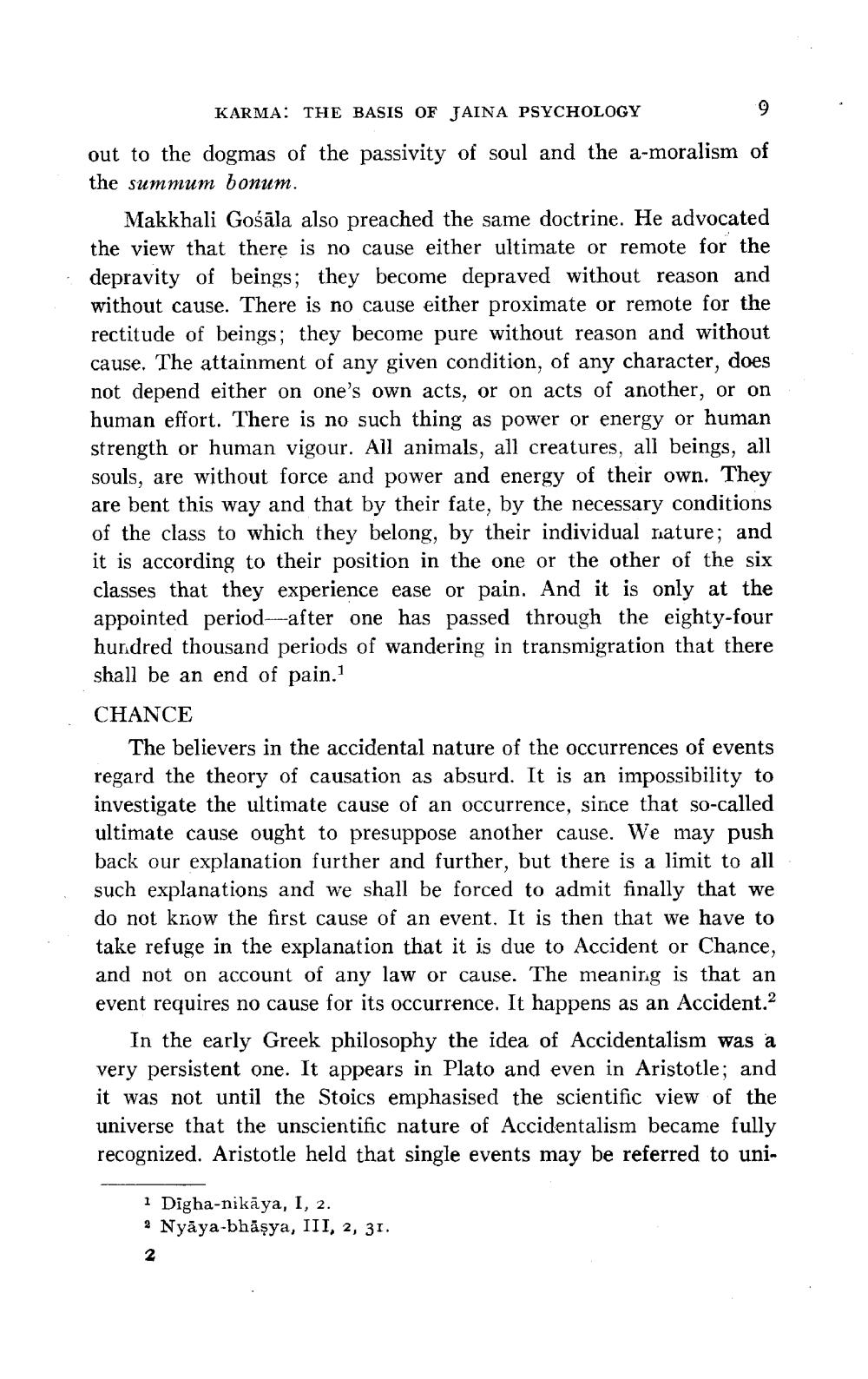________________
KARMA: THE BASIS OF JAINA PSYCHOLOGY
9
out to the dogmas of the passivity of soul and the a-moralism of the summum bonum.
Makkhali Gośāla also preached the same doctrine. He advocated the view that there is no cause either ultimate or remote for the depravity of beings; they become depraved without reason and without cause. There is no cause either proximate or remote for the rectitude of beings; they become pure without reason and without cause. The attainment of any given condition, of any character, does not depend either on one's own acts, or on acts of another, or on human effort. There is no such thing as power or energy or human strength or human vigour. All animals, all creatures, all beings, all souls, are without force and power and energy of their own. They are bent this way and that by their fate, by the necessary conditions of the class to which they belong, by their individual nature; and it is according to their position in the one or the other of the six classes that they experience ease or pain. And it is only at the appointed period-after one has passed through the eighty-four hundred thousand periods of wandering in transmigration that there shall be an end of pain.1
CHANCE
The believers in the accidental nature of the occurrences of events regard the theory of causation as absurd. It is an impossibility to investigate the ultimate cause of an occurrence, since that so-called ultimate cause ought to presuppose another cause. We may push back our explanation further and further, but there is a limit to all such explanations and we shall be forced to admit finally that we do not know the first cause of an event. It is then that we have to take refuge in the explanation that it is due to Accident or Chance, and not on account of any law or cause. The meaning is that an event requires no cause for its occurrence. It happens as an Accident.2
In the early Greek philosophy the idea of Accidentalism was a very persistent one. It appears in Plato and even in Aristotle; and it was not until the Stoics emphasised the scientific view of the universe that the unscientific nature of Accidentalism became fully recognized. Aristotle held that single events may be referred to uni
1 Digha-nikaya, I, 2.
2 Nyaya-bhāṣya, III, 2, 31.
2




